Role Play: Dealing with expansion lulls
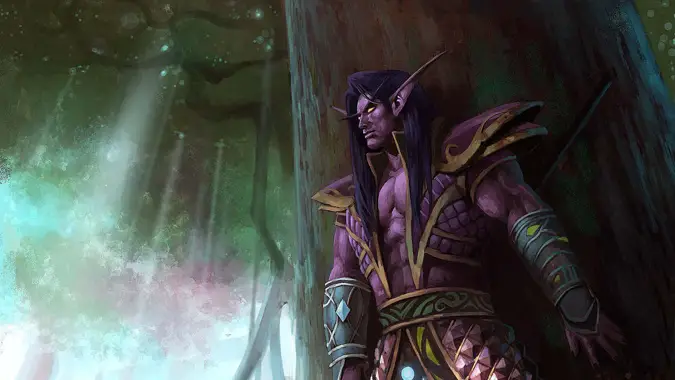
Roleplaying is a different kind of animal in World of Warcraft. It’s not like PVP or PVE — Blizzard isn’t creating the content for you, you’re creating it yourself. Roleplaying guilds can and do participate in PVE and PVP content, but the roleplay content is usually the focus. Guild-planned events don’t necessarily need to involve current expansion content — storylines can be about anything. The only real limit is your imagination.
Despite this, roleplaying guilds can go through the same kind of lulls as any other guild. Your guild’s focus may not be on PVE or PVP content — but if players get bored, they won’t stick around. Roleplayers don’t typically just focus on roleplaying content alone. They need other things in game to keep them occupied. And just like a PVE or PVP focused player, if there’s a lack of content, they may look elsewhere for things to do. What do you do if your roleplaying guild or group is dealing with an expansion lull or burnout?
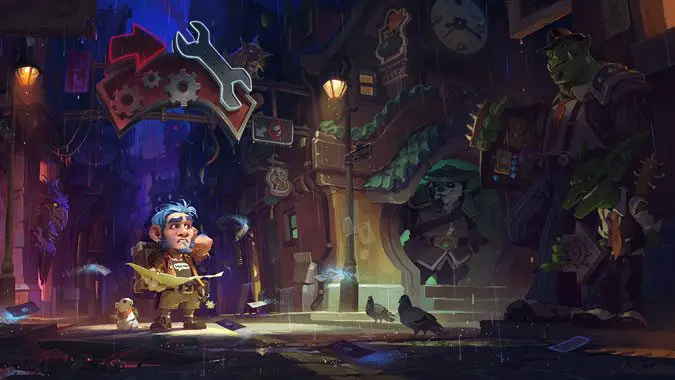
Recruitment
For roleplaying guilds and groups, it’s not as easy as simply recruiting more players to fill holes. You aren’t looking for a particular class to fill a slot; you’re looking for a writer. You’re looking for a particular type of character. It’s not about DPS in these scenarios. It’s about whether or not a character will fit within the context of a guild storyline. This can be a lot harder to track down, particularly later in an expansion.
But sometimes a new player or two is all a guild needs to get back on track. If your guild storyline is burning out, new blood offers new story potential. When you’re recruiting later in an expansion, it can be worth it to relax your requirements for new players. That character you thought wouldn’t make a good addition to the team might just be full of new ideas. It’s those new ideas that keep roleplay fresh and interesting.
Roleplaying guilds have a distinct advantage over PVP and PVE guilds in these scenarios. You aren’t dealing with progression content here. It’s all player-created content. Since your focus isn’t on raid performance, you aren’t limited by class or gameplay skills. So you can cast the net wider when recruiting, without worry about whether or not you’ll be able to clear progression content. Progression isn’t an issue — it’s all about the story.
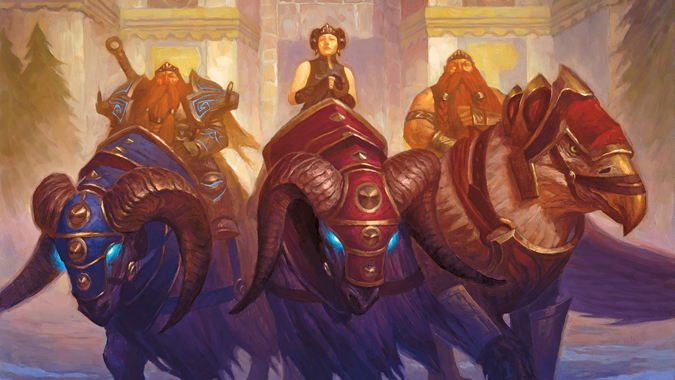
Holding interest
Despite this, recruiting isn’t going to be easy in the later parts of an expansion. This has little to do with roleplay in general, and everything to do with the expansion itself. Roleplayers may not focus on PVE or PVP content, but they don’t solely focus on roleplay, either. When they aren’t roleplaying, they need something to do. If that something to do isn’t present, they may look elsewhere for entertainment.
You can’t really compensate for a lack of PVE or PVP content. What you can do is offer alternatives. Try offering guild runs through old content, for achievements and transmog farming. Take the group around the world, to hunt through areas for new hangout spots for roleplay. Have a night dedicated to leveling alt characters, hitting every dungeon and raid along the way. Run dungeon-clearing races, offering RP-appropriate prizes for the winners — like transmog gear, toys, or in-character pets.
You don’t have to focus on roleplaying in any of these scenarios. The guild can focus on the game itself, and just have fun as a group. Hop on Discord or another voice program to chat with each other while hanging out. The point isn’t to drum up new roleplay; it’s just to offer something different for the guild to do.
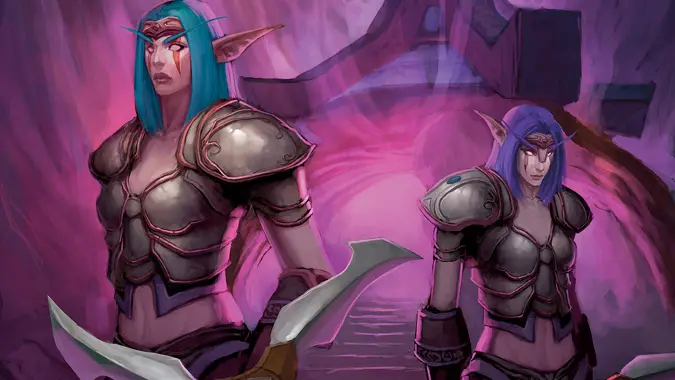
Taking breaks
Sometimes even non-RP events and activities aren’t quite enough to hold player interest. Despite all your best efforts, some players still aren’t going to want to stick around. Step back, and take a deep breath: This is perfectly okay. It’s not personal — more than likely, it has nothing to do with you at all. It’s not a reflection of your skills as a roleplayer or a guild leader.
There’s nothing wrong with wanting to take a break from the game. Players do it all the time when there’s a lull. Talk to the player about their decision if you need to; get a feel for where they’re at. Let them know they’ll be welcomed with open arms when they return. Don’t get upset or critical about their choice to step away for a while. If you treat a player as if their decision is offensive or wrong, they may not want to come back.
Before they leave, go over any open storylines they may have with the guild. Figure out the best way to resolve these situations from a story standpoint. Come up with an in-character reason for their character’s absence. Taking these extra steps will help keep your guild storyline intact. It also shows the departing player that you care about their character, and you’re willing to bring them right back into the fold when they return.
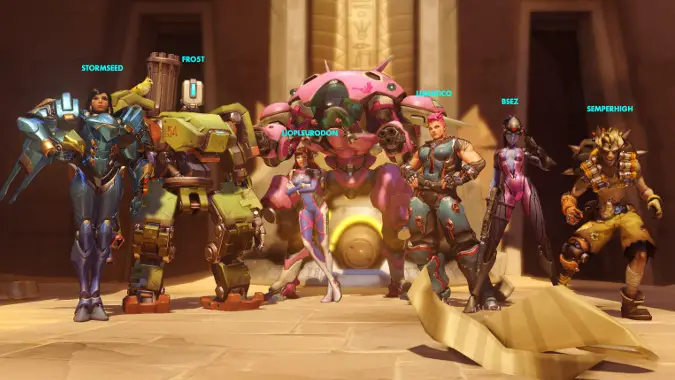
Guild vacations
If the entire guild or group is feeling a little sluggish and less creative, you might want to consider a guild vacation. You can set this up as a scheduled break from the game for a week or two, or longer if necessary. If everyone is going their separate ways, set up a guild Discord so people can keep in touch while they’re doing other things.
Alternatively, you can take a vacation as a group, and check out a different game together. It doesn’t need to be an MMO — there are plenty of multiplayer titles out there. Sometimes the best way to combat creative burnout is to simply step away from a project for a while. Let your creative energies recharge while you focus on something else.
But if you take this route, make sure that everyone stays in touch. You don’t want people to forget about the guild. You want to remind people why the guild is fun. It’s not just about the storylines; it’s about hanging out and having fun with your fellow roleplayers. Don’t focus on cranking out storylines or roleplaying ‘content’ for your guild to try to keep them together. If your group’s heart isn’t in it, those storylines aren’t going to be very entertaining, no matter how much work you put in. Instead, take a step back and focus on the people behind the characters. Let them know they’re appreciated for more than just the roleplaying.
Keep an open discussion about when people feel like returning to roleplay. Bounce around different character ideas and scenarios while you’re vacationing. Talk about upcoming content when new information comes out. Don’t force any commitments about returning — just keep the conversation alive.
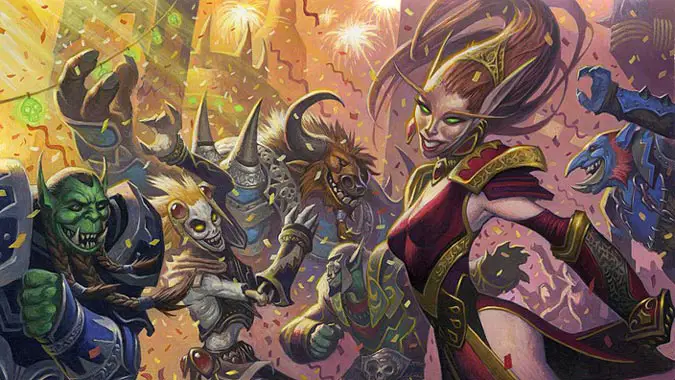
Welcome home
Make sure your fellow roleplayers know that their need for a break isn’t being held against them. Let them know that their return, whenever that might be, will be welcomed with open arms. And when they do come back, take some time to fill them in on what’s been happening while they’ve been away. You can even throw an in-character event for the guild to welcome them back and allow them to catch up in-character.
A break from roleplay doesn’t automatically mean a player is gone forever. It just means they need some time to recharge and think about something else for a while. Allowing your fellow roleplayers that space to breathe isn’t a bad thing. If anything, it means that when their interest invariably returns to the game, they’ll be refreshed and ready to crank out more stories than ever.
Please consider supporting our Patreon!
Join the Discussion
Blizzard Watch is a safe space for all readers. By leaving comments on this site you agree to follow our commenting and community guidelines.
 @Shadesogrey
@Shadesogrey



